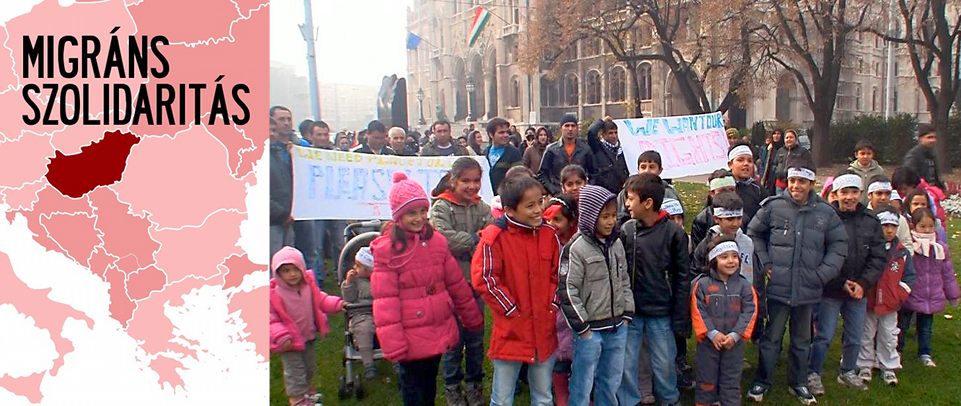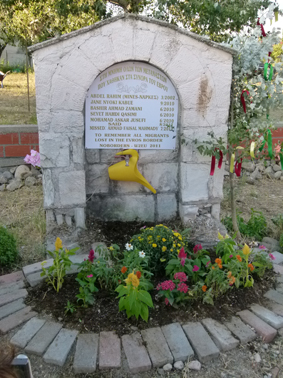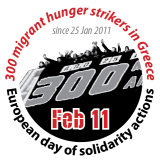Today in the afternoon more then 50 people gathered in the harbour of Thermi/Lesvos in commemoration of the dead of the European border regime. Among them were survivors of a shipwreck on 23rd of April of this year in the North of Lesvos as well as people active in rescue. The memorial happens once every year since October 2013 and was initiated by the Welcome to Europe network.
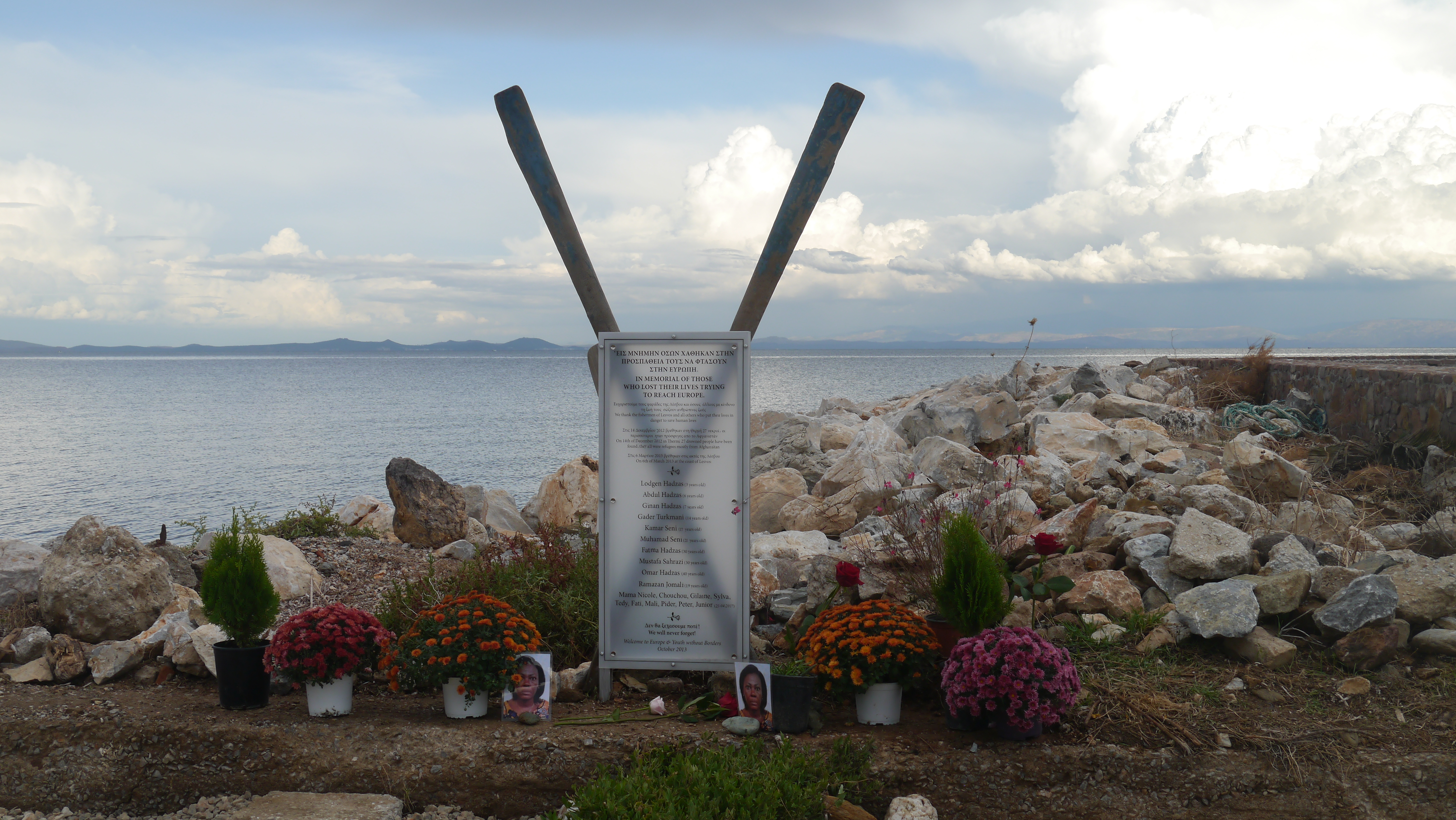
copyright: Marily Stroux
When we started to remember this year, who we have to mourn for, we realized that we are more and more confronted with death even after people have survived the sea. We had to commemorate today also friend who died last winter in the hot-spot of Moria, because they had been left during winter in terrible conditions. We are in close contacts with families that they waited too long to be reunited with their beloved even if they had the right for family reunification and died before. If you really want to mourn the dead of the Sea, you have to respect also the survivors. The only solution to end their suffering is to create safe passages, to give the people their right to move freely – and for those who are stuck here to finally open the islands. This is why every memorial for us is combined with the promise to tear down the borders that killed them and to create another, a welcoming Europe.
This year the memorial plate was renewed and fixed. We thank to: the local club of the fishermen ΝΕΣΕΑΛΘ “ΠΟΣΕΙΔΩΝ“, Stellios from the shipyard in Kontouroudia, metal work Gianis Moisis, Chrisanthos, Alcalica-ALM eV, Simos and Web copy shop.
Memorial speech
25th of October 2017
We came together today here in the harbour of Thermi for remembering the dead of the European border regime.
Today we came here together with Joelle, Sylvie and Victoria. They survived when a boat was sinking in the North of this island on 23rd of April this year. Joelle and Sylvie asked themselves where the others disappeared when they drifted for many hours in the Sea until they where finally rescued. Only one month later Victoria was born here in Mitilini – and she reminds us, that life continues.
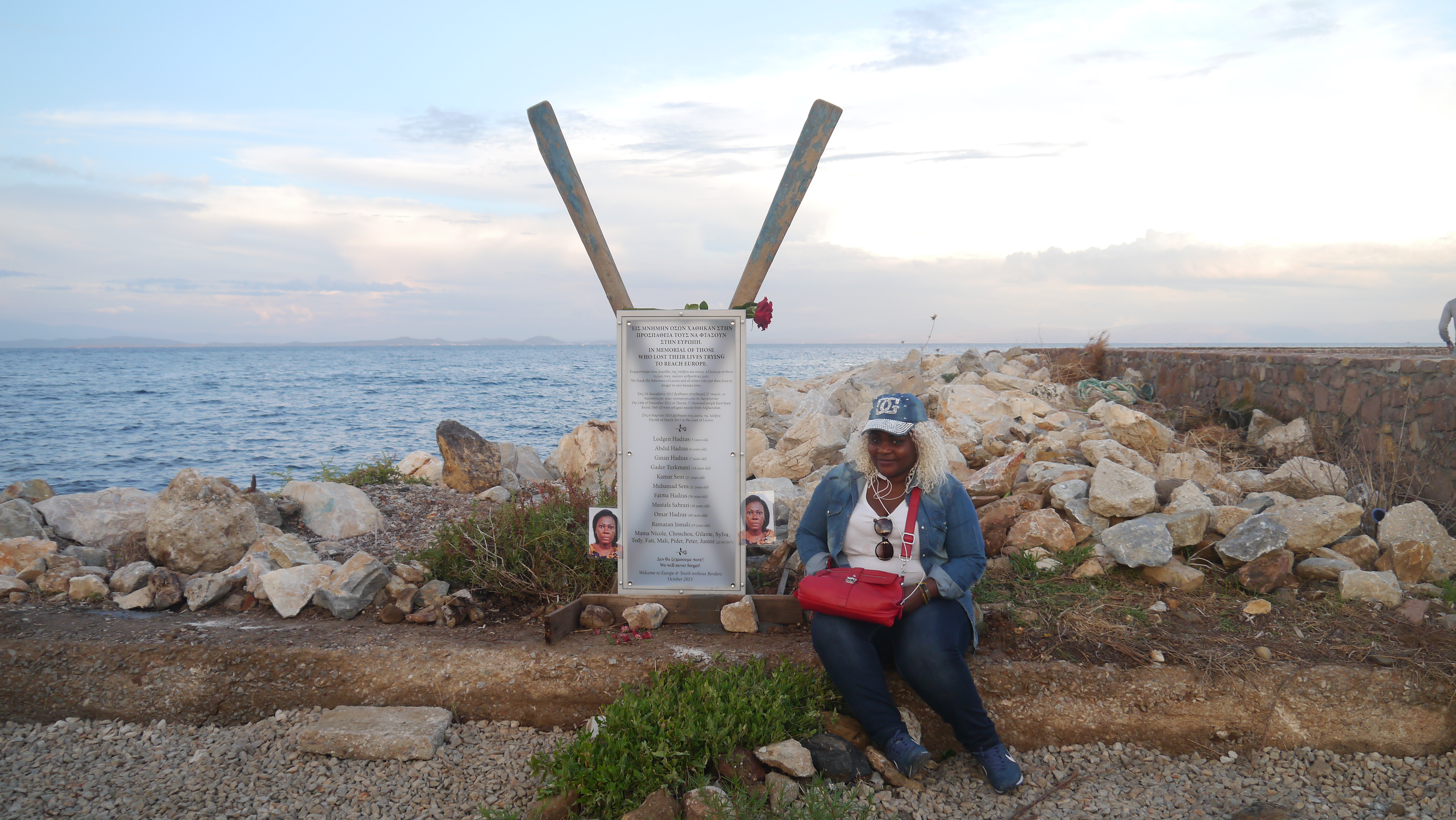
copyright: Marily Stroux
Since we started to remember here in Thermi in 2013 every year we had to come back. Every year the death by the border regime continued. Every year we came and we renewed the promise not to give up until the killing stops.
It did not stop – even if many of us tried hard. This year until today more then 2.600 people have been killed in the Mediterranean Sea again. Also this year we have been in touch with many people who survived shipwrecks – as well as people who give us testimonies of death in the deserts even before people reach the sea.
We are here together with people who went again and again to the beaches. Who went with boats at the Sea to rescue. Who started an Alarm Phone hotline for boat people. Who just went to the sea for fishing and became rescuers and who had to take the dead bodies from the sea. Who held the relatives and friends of the drowned after they discovered the loss. Who shared parts of the way with the survivors.
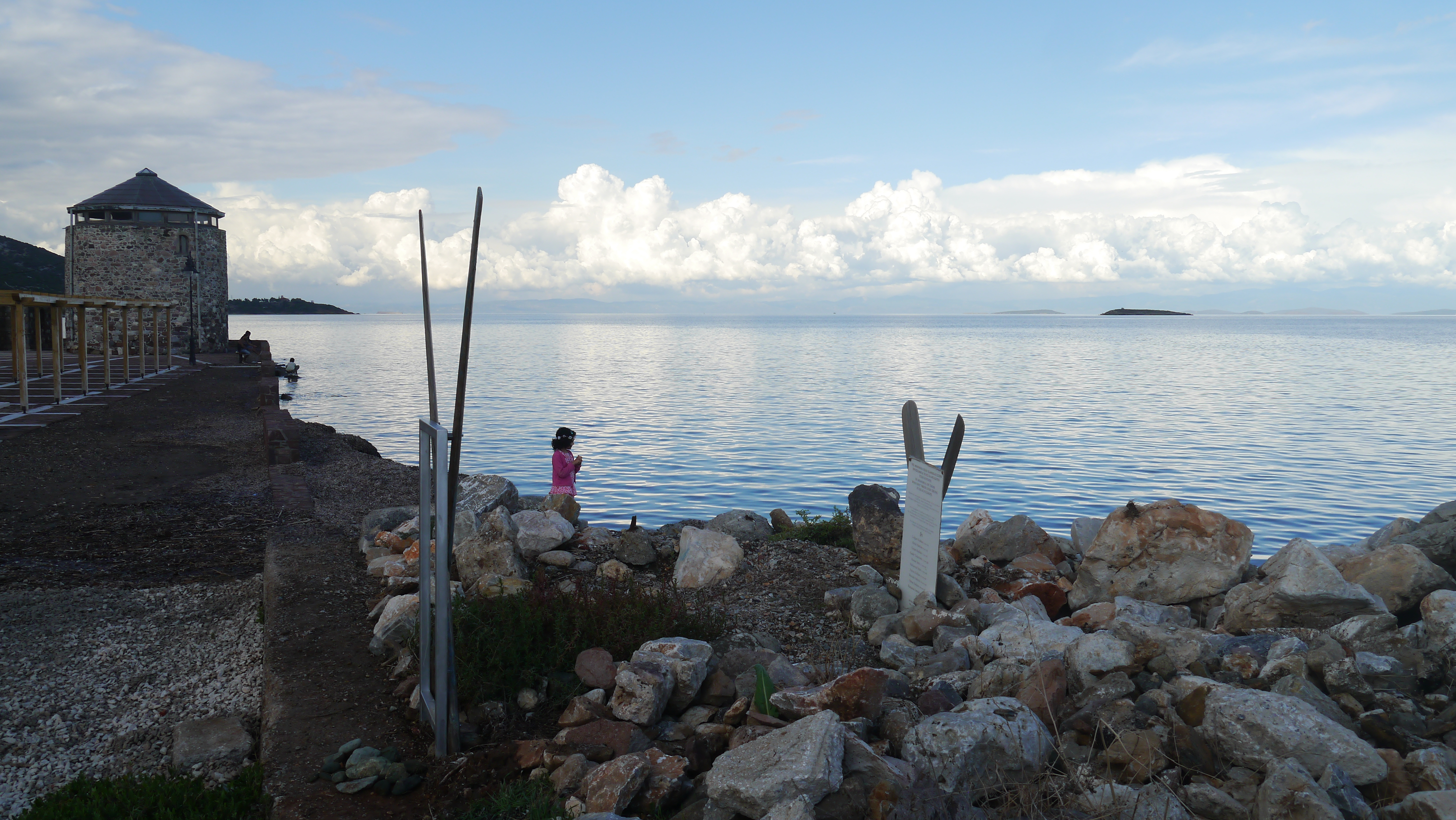
copyright: Marily Stroux
All of us did not close our eyes. We remember and don’t forget.
We all feel ashamed in the moment of these deaths because we failed in our attempt to stop this murderous regime and to create a welcoming Europe.
This year we have to remember not only the death at Sea.
Ever since the closure of the Balkan Corridor on March 8th 2016 and the implementation of the dirty EU-Turkey Deal in March 20th inhuman conditions for refugees in Greece have caused death both in the EU-funded so-called hotspots on the Aegean Islands as well as in the newly established emergency reception sites all over the mainland.
While almost a million refugees had crossed through Greece and over the Balkans in 2015 and not few of them even got a protection status in countries of the European North, their relatives got caught up in limbo trying to survive in tents, without access to doctors, lawyers and under deplorable conditions. Thousands of families with small kids, slept on the mere floor and had no access to sufficient and clean toilettes, showers, warm water or eatable food for months.
When winter came the situation escalated and in January 2017 the tragedy peaked in a dozen of deaths all connected to the harsh weather conditions and the lack of proper heating in the makeshift and provisory housing people in hot-spot Moria or else were forced to stay.
– We remember a 66 years old Kurdish woman and her granddaughter (6 years old)
They died on November 24th, 2016 after a portable cooking gas stove exploded inside a tent, setting on fire parts of the Moria hotspot on the island of Lesvos in Greece. The 30-year-old mother of the child, and her other 4-year-old child, (the family are Syrian Kurds) were seriously injured with third degree burns to about 55% of their bodies and were transferred to Athens for medical treatment.
– We remember the 29-year-old refugee who tragically lost his life in Chios after putting fire on himself in March 2017.
– We remember a 22-year-old Egyptian man. He died on Tuesday, January 24th, 2017 in a tent at Moria in his sleep. The day after, on January 25th, a 41-year-old Iraqi man was found dead at the Samos hotspot. On January 28th, a 45-year old Syrian father of six children, died in the same tent at Moria where the Egyptian had died four days earlier. On Monday, January 30th, a 20-year-old Pakistani man lost his life, again at Moria, and an Afghan man was transferred to an intensive care unit in a critical condition and remained in a life-threatening condition for several days.
– We remember a 5-year-old child that died in a tent in Moria, she was seriously sick and the last she saw from this world was a hot spot made to detere people.
– We remember also the man who died last Saturday during the riots in Moria after having a heart-stroke.
At the mainland, refugees lost their lives on the highways next to their camps in traffics accidents, they got severe injuries from the makeshift heating they tried to use in order not to freeze in their tents, and dozens lost their lives when the ambulances arrived to late in the marginalized camps.
We remember our friends, whose lives got lost after they had managed to escape war, after they risked death when crossing one border after the other clandestinely, and after finally reaching Europe.
– We remember Ismail from Syria, who died from cancer in Skaramangas camp before being able to join his son in Sweden.
– We remember 2-months-old Noursan from Syria, who passed away on the way from Ritsona camp to the hospital.
– We remember one-year-old Safa from Syria who was enduring in Athens childrens hospital after more than 10 months in Katsikas camp in Northern Greece in order to get the permit to leave the Germany for the so much needed heart transplant. Both German and Greek authorities did not react fast enough to let her join her family. In the end her father and the three other sisters and brothers moved to Germany to her mother and other sisters and brothers leaving her small body back in a graveyard in Athens.
– We remember also the 57-year-old husband of Fatima from Syria, who passed away in Filipiada camp after a heart attack. His wife and daughter were forced to wait seven more months to join their two sons in Germany in order to be able and grief for their father and husband together.
– We remember 7-year-old Nourian from Syria, who drowned in Skaramangas the days his father finally could come from Germany and visit him and his mom after months apart.
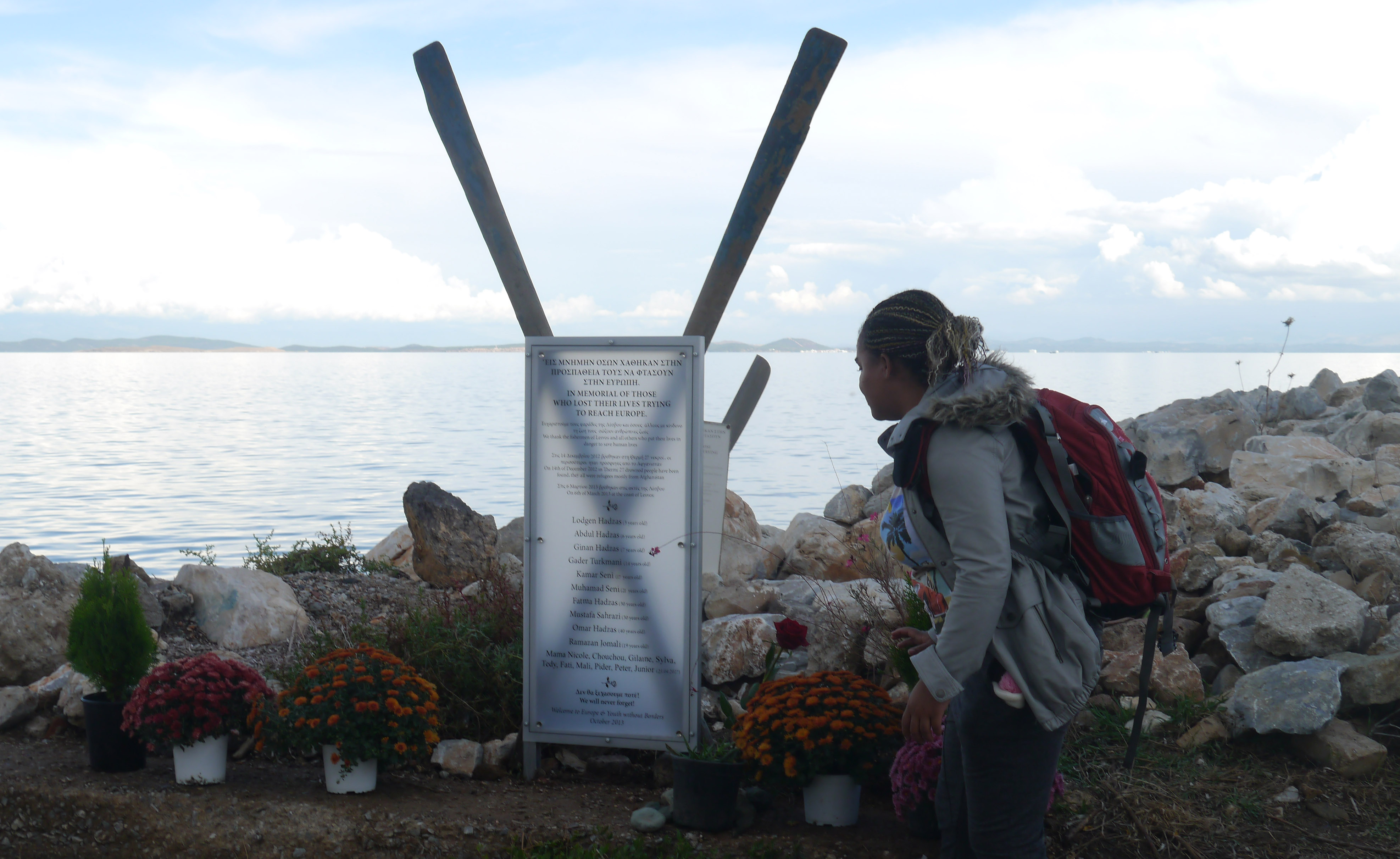
copyright: Marily Stroux
Lets not forget also our friends who stayed with us in City Plaza and with whom we shared not only a home and food but also a common struggle for a better world.
– We remember Hamid from Afghanistan, who drowned in Athens while waiting for months to reunite with his daughter in Switzerland. He left his beloved wife Feruza, two daughters and a son back. He stayed for months in Elliniko camp where he would always return even after moving to Plaza in order to visit friends and help cleaning the areal in front of the camp.
– We remember 62-year-old Fatima, the mother of Mustafa and Selah, from Syria, who passed away shortly before they were scheduled to join their family in France through relocation.
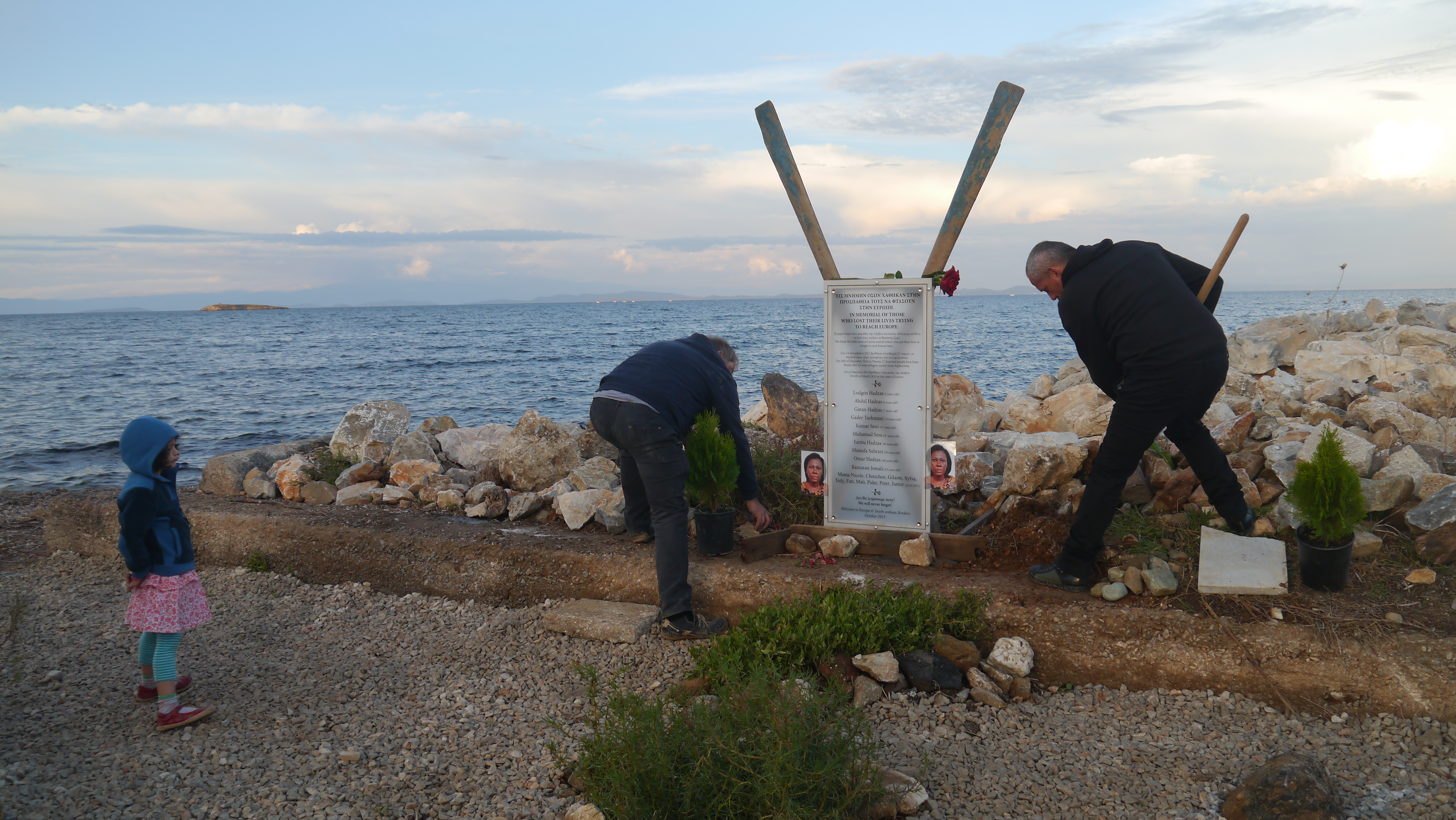
copyright: Marily Stroux
Here and today, we want to stop for a moment and create a space for all those who lost their lives. Remembering here means to save the stories of the uncounted who died at the borders of Europe. They died in the desert, in the sea, they died even at the deadly inner-european borders.
They had been on the way to change their lives on their own. Their death is the death in search for freedom. And that concerns all of us.
There would be many more names and many more stories. We will never forget all of them and we will today remember especially the friends of Joelle and Sylvie.
We will remember them because all of them they have families, they have friends they left behind – who cannot be here with us, because these borders even separate them now.
So let us speak out their names:
Maman Nicole – she lives!
Chochou – she lives!
Gilaine – she lives!
Sylvia – she lives!
Tedy – he lives!
Fati – he lives!
Mali – he lives!
Pider – he lives!
Peter – he lives!
Junior – he lives!
We will never forget them.
We promise to give our best to tear down the borders that killed them.
We invite you to have a rest in memory of them – and then to move on: to tear down the borders and to build another, a welcoming Europe.
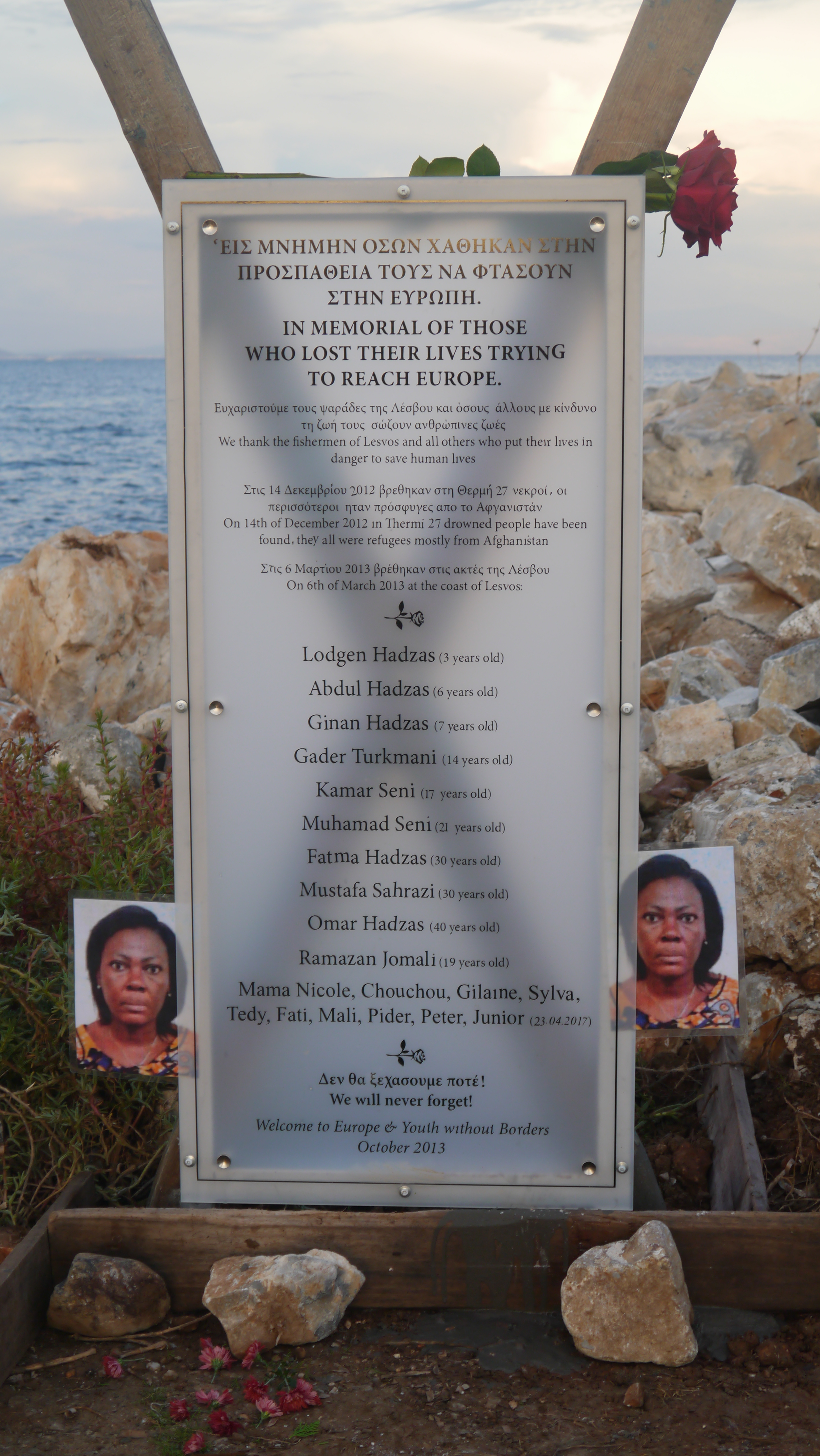
copyright: Marily Stroux
